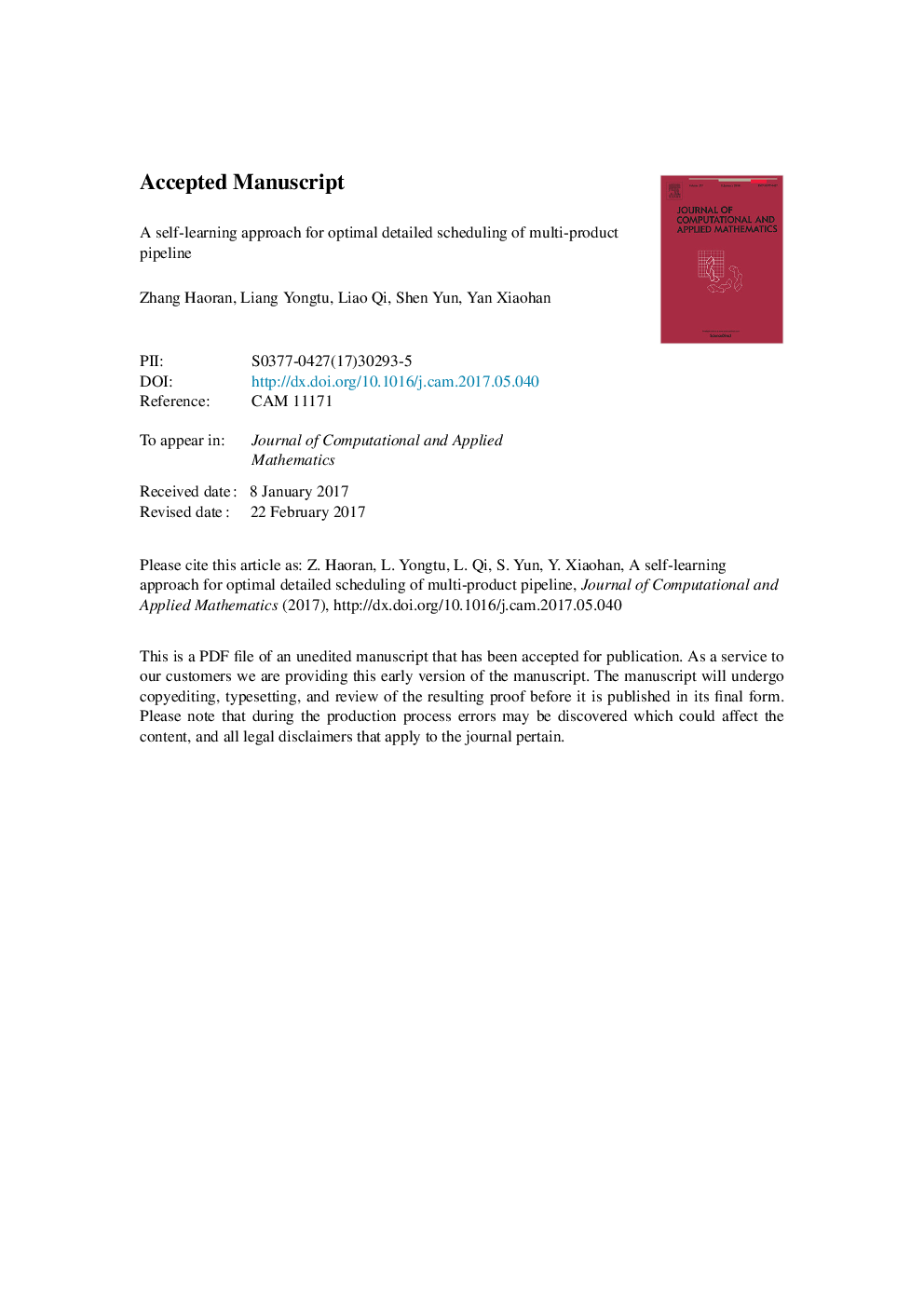| Article ID | Journal | Published Year | Pages | File Type |
|---|---|---|---|---|
| 5776162 | Journal of Computational and Applied Mathematics | 2018 | 32 Pages |
Abstract
Pipeline transportation is cost-optimal in refined product transportation. However, the optimization of multi-product pipeline scheduling is rather complicated due to multi-batch sequent transportation and multi-point delivery. Even though many scholars have conducted researches on the issue, there is hardly a model settling the discontinuous constraints in the model as a result of batch interface migration. Moreover, through investigation, there is no self-learning approach to pipeline scheduling optimization at present. This paper considers batch interface migration and divides the model into time nodes sequencing issue and a mixed-integer linear programming (MILP) model with the known time node sequence. And a self-learning approach is proposed through the combination of fuzzy clustering analysis and ant colony optimization (ACO). This algorithm is capable of self-learning, which greatly improves the calculation speed and efficiency. At last, a real pipeline case in China is presented as an example to illustrate the reliability and practicability of the proposed model.
Keywords
Related Topics
Physical Sciences and Engineering
Mathematics
Applied Mathematics
Authors
Zhang Haoran, Liang Yongtu, Liao Qi, Shen Yun, Yan Xiaohan,
